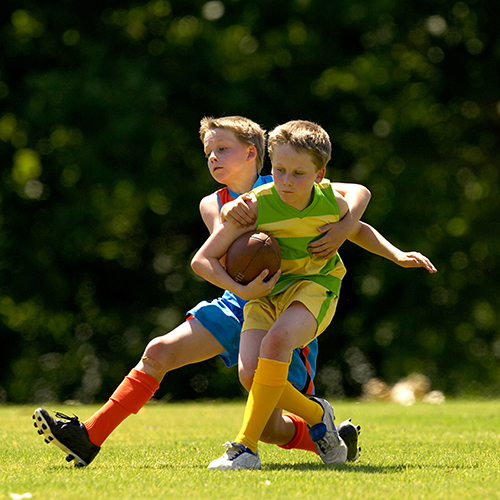09 September 2025
 As footy fever sweeps the nation, players at every level are preparing for the toughest games of the year. But fierce competition in a high-contact sport increases the risk of concussions, and if these injuries aren’t managed appropriately, the impacts can be devastating.
As footy fever sweeps the nation, players at every level are preparing for the toughest games of the year. But fierce competition in a high-contact sport increases the risk of concussions, and if these injuries aren’t managed appropriately, the impacts can be devastating.
Now, a new study from the University of South Australia is tackling concussions at the grassroots level to determine how well parents and staff of junior community football players understand head injuries – and what more can be done to protect players.
In Australia, about 300,000 young people under the age of 16 play in community football clubs. One in five hospitalised concussions involve sport.
Lead researcher, Dr Hunter Bennett, says while community football clubs are aware of concussion risks, more needs to be done to protect young players at local levels.
“Concussion is one of the most common injuries in contact sports, with children more vulnerable than adults,” Dr Bennett says.
“Yet while professional football teams have dedicated medical experts to manage concussions, most community football clubs rely on parents or volunteers. That means a child might be treated on game day, but what happens in the days and weeks afterwards is more or less unknown.
“Our concern is that many young players could be returning to the game too soon, without the rest and recovery they need.
“By assessing the knowledge, attitudes and confidence of club staff, parents and volunteers, we hope to identify any knowledge gaps that can help the club better recognise, manage and support concussion injuries in children.”
The study will also identify current concussion management practices, including adherence to return-to-play protocols and barriers to proper rehabilitation in junior (<16 years) community football.
The AFL and the Australian Sports Commission have established a minimum 21-day standdown following a concussion.
While community sports organisations have return-to-play guidelines, Dr Bennett says that they can be viewed as minimum requirements, and therefore may not always allow for a full recovery.
“Guidelines are important, but by themselves they aren’t always helpful because people may not understand or follow them appropriately,” Dr Bennett says.
“Community football is about creating an engaging, cohesive and positive experience for all. Everyone - the parents, coaches, players and volunteers – wants to deliver their best.
“By upskilling clubs, schools and community sports groups to better recognise the signs of concussion, follow proper protocols and prioritise player wellbeing, we can create a safer sporting culture at every level.”
Parents, coaches and volunteers from community football clubs are invited to take part in the survey.
…………………………………………………………………………………………………………………………
Contact for interview: Dr Hunter Bennett E: Hunter.Bennett@unisa.edu.au
Media contacts: Orph Both T: +61 8 8302 9797 E: Orph.Both@unisa.edu.au
Annabel Mansfield M: +61 479 182 489 E: Annabel.Mansfield@unisa.edu.au




